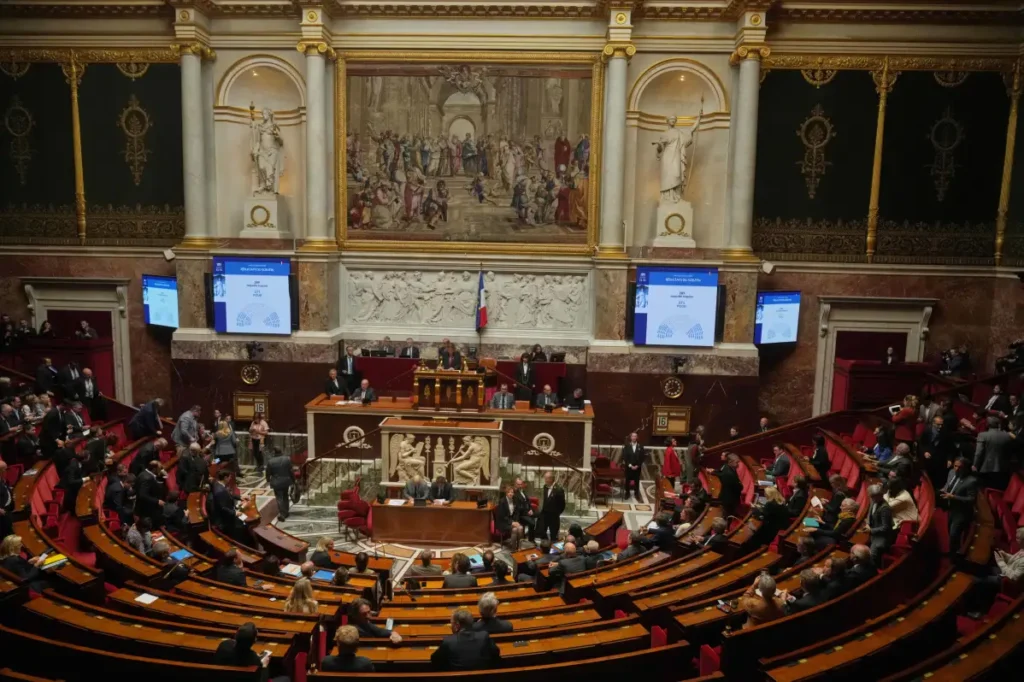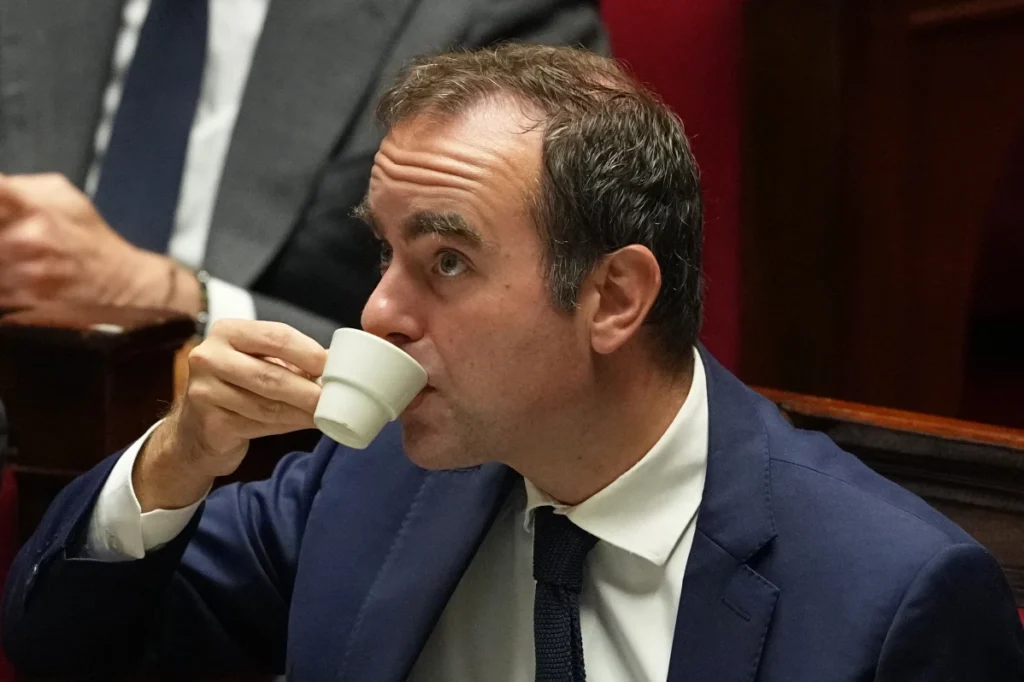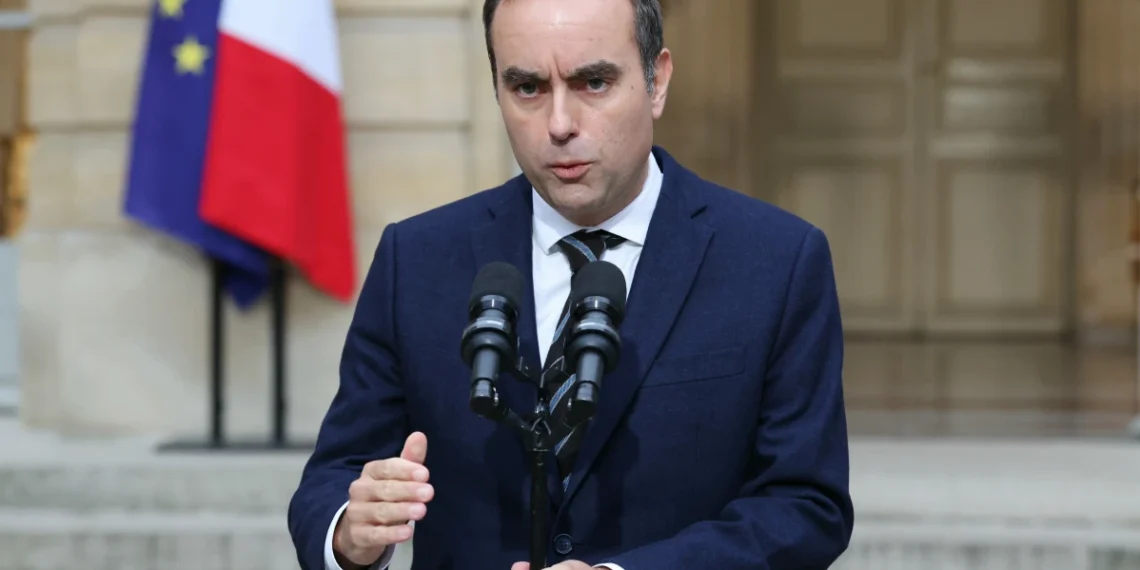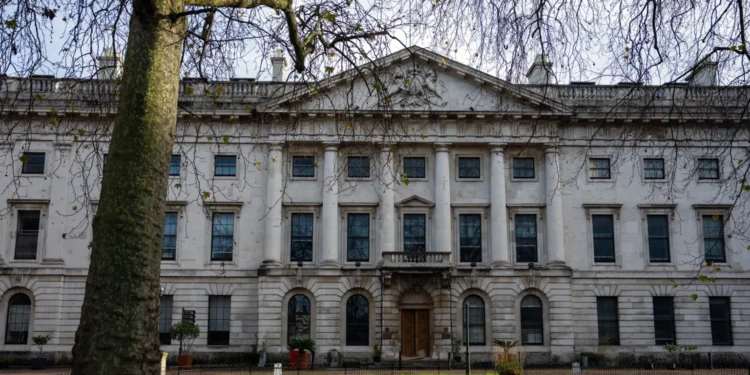French Prime Minister, Sébastien Lecornu has survived two votes of no-confidence that could have ousted his new government and plunged France deeper into political chaos.
Lecornu faced two no-confidence motions filed by French President, Emmanuel Macron’s fiercest opponents; the hard-left France Unbowed party and Marine Le Pen of the far-right National Rally and her allies in Parliament.
The 577-seat chamber voted on the France Unbowed motion first and it fell short by 18 votes, with 271 lawmakers supporting it. It needed a majority of 289 votes to succeed. Le Pen’s second motion got just 144 votes, well short of a majority.

Le Pen has for weeks been campaigning hard for fresh legislative elections, buoyed by polls that suggest that the National Rally could capitalize, as it did after the last dissolution in 2024.
Lecornu resigned as Prime Minister last week only for Macron to re-appoint him again four days later.
Le Pen and her right-wing ally Eric Ciotti filed their censure motion the morning after the newly re-appointed Prime Minister named his new Cabinet on Sunday. It says that dissolving the National Assembly “is the most efficient and most democratic way to get our country out of the dead end.”
The France Unbowed censure motion, also filed Monday morning, argues that toppling Lecornu could help spur the ouster of Macron too, even though the French leader has said that he has no intention of cutting short his second and last presidential term that ends in 2027.
“The resignation or the impeachment of Emmanuel Macron are the only solutions to offer a clear democratic outcome to the current chaos: a return to the ballot boxes. That way, the people will have the opportunity to turn the page on an authoritarian presidency.”
The France Unbowed censure motion
Lecornu’s survival spares any immediate need for President Emmanuel Macron to again dissolve the National Assembly and call snap legislative elections, a hazardous option that the French leader had signaled that he might take if Lecornu fell.
However, Lecornu is not out of danger yet. To get the votes he needed, Lecornu dangled the possibility of rolling back one of the flagship but most unpopular reforms of Macron’s second term as President, which will gradually raise France’s retirement age from 62 to 64.
Lecornu’s proposed suspension of the 2023 pension reform helped convince opposition Socialist Party lawmakers to grudgingly decide not to back the efforts to topple him, at least for now.
With 69 lawmakers, Socialist backing for Lecornu’s removal would have tipped the votes against him but just seven Socialists broke ranks in voting for the France Unbowed motion.
The conservative Republicans, with 50 lawmakers, also withheld support for Lecornu’s removal, with just one exception.
Lecornu Faces Challenge Of Passing Budget

The National Assembly votes clear the way for Lecornu to pursue what could be an even greater challenge: getting a 2026 budget for the European Union’s second-largest economy through Parliament’s powerful but bitterly divided lower house before the end of the year.
Lecornu’s still fragile position could yet crumble in the coming weeks or months if the Socialist or Republicans lawmakers change tack and support any future no-confidence votes if they don’t get what they want in the budget negotiations that are sure to be fractious.
Lecornu has promised not to use a special constitutional power to railroad the budget through Parliament without lawmakers’ approval which was the tool that Macron’s government employed to impose the 2023 pension reform despite a firestorm of protests.
Building consensus in Parliament for tax hikes, spending cuts and other budget measures to start reining in France’s state deficit and debt promises to be extremely difficult.
READ ALSO: A Brewing Debt Storm Threatens Ghana’s Recent Economic Gains






















